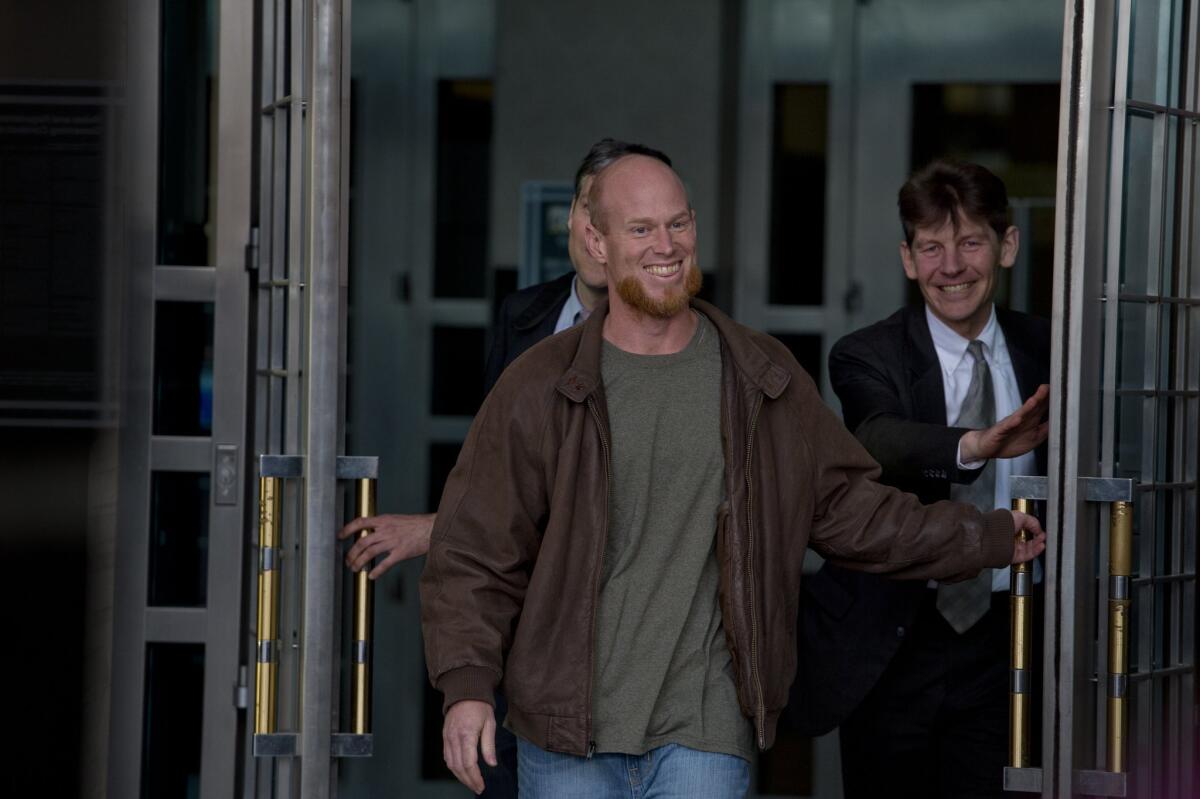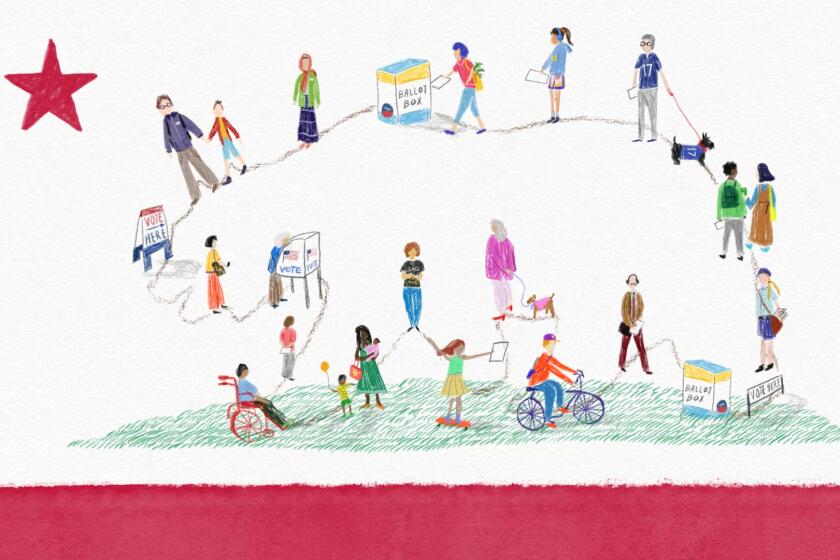Opinion: In eco-terrorist case, justice is thwarted

There are many disturbing aspects to the federal government’s 2007 case against alleged eco-terrorist Eric McDavid. Key among them: That the FBI failed to turn over thousands of pages of material that could have bolstered McDavid’s trial defense that he had been entrapped.
And then there’s “Anna,” the attractive female FBI informant who, according to court papers, had promised McDavid a romantic relationship once he and two other environmentalists carried out a series of attacks against government targets -- a conspiracy buoyed by housing and food provided by the feds through Anna. The government was so concerned about its informant’s reliability that it contemplated submitting her to a lie detector test, but that never took place.
Yet the full details about Anna weren’t disclosed to the defense as they should have been under what is known as the Brady rule, which requires prosecutors to share all potentially exculpatory information with defense lawyers. Add to that oversight a set of contradictory jury instructions by the judge, which two jurors now say probably swayed the verdict from a finding of entrapment to a conviction. McDavid was sentenced to nearly 20 years in prison.
“This is huge,” U.S. District Judge Morrison C. England Jr. said as he approved a plea deal that freed McDavid after nine years in custody. “This is something that needs to be dealt with, and I want to know what happened.”
Some background: McDavid and two others were arrested on charges that they conspired in 2005 and 2006 to build bombs to destroy Sacramento’s Nimbus Dam and fish hatchery, electrical power facilities, cell towers and a U.S. Forest Service science center. No attacks took place. McDavid was an environmental activist, and at the time, U.S. Atty. McGregor Scott said the long prison sentence should serve as “a cautionary tale” to would-be eco-terrorists.
In 2012, McDavid’s appellate lawyers filed a motion for a review of his conviction based on allegations of inadequate counsel during the trial; that the government “procured and used false testimony at trial,” and that the government violated the Brady rule. After a couple of years of legal back and forth, including Freedom of Information Act/Privacy Act filings, the government turned over previously undisclosed documents in November and December and began negotiating with McDavid’s legal team about how to resolve the issues.
Although the government denied the material could have helped the defense, it made a deal under which McDavid pleaded guilty to a conspiracy charge with a maximum sentence of about five years; he had already served more than that on the original conviction.
There’s more at play here than a single case of overlooked reports -- the U.S. attorney said the failure to turn over the material was “inadvertent” and that it had remained in FBI files rather than been forwarded to the prosecutors. Fine. Mistakes happen. But when they happen with regularity it’s no longer a mistake, it’s a pattern.
Alex Kozinski, chief judge of the U.S. 9th Circuit Court of Appeals, warned two years ago of “an epidemic of Brady violations abroad in the land,” citing a string of federal cases in which the prosecutors failed to divulge information to the defense that they were required to turn over. Every time that happens there’s an increased risk of miscarriage of justice as, apparently, happened here -- though the problems in the McDavid case extended to the perjured testimony and the confusing orders to the jury (the judge first said Anna was a federal informant at the start of the conspiracy, then said she wasn’t, affecting the jurors’ perception of entrapment).
But much more than individual convictions hinge on such fundamental failures. When cops and prosecutors bend or violate the rules for the sake of gaining a conviction, justice not only is not served, it is thwarted.
A judicial system relies on faith by the participants that it will work fairly. Right now, there are good reasons to doubt that’s the case.
Follow Scott Martelle on Twitter @smartelle.
More to Read
A cure for the common opinion
Get thought-provoking perspectives with our weekly newsletter.
You may occasionally receive promotional content from the Los Angeles Times.











